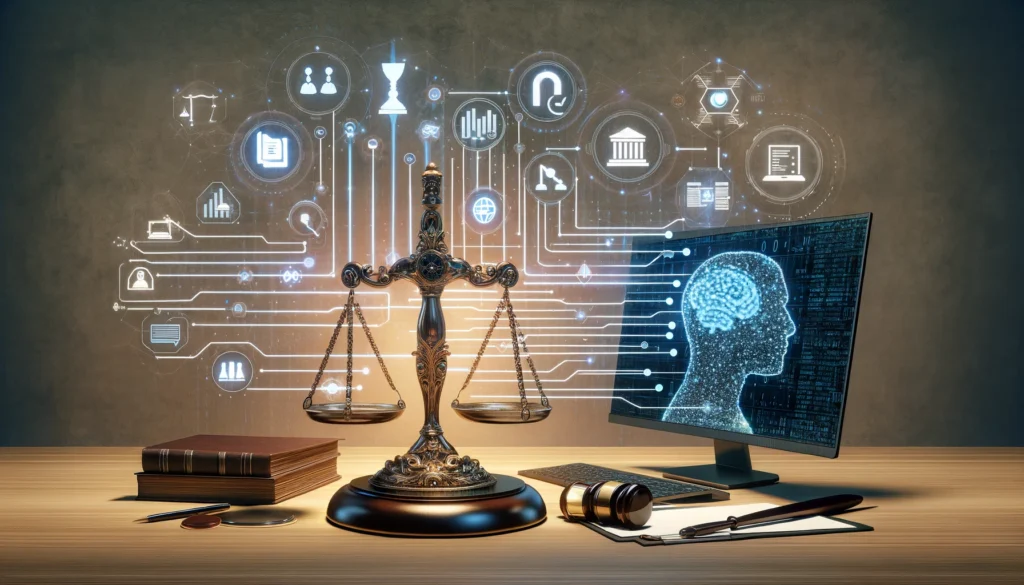
Revolutionizing Paralegal Workflows with ChatGPT
The traditional workflow in preparing equity financing documents has long been labor-intensive and time-consuming. Paralegals often grapple with arduous tasks involving meticulous drafting, thorough due diligence, and incessant document revisions. These manual processes can lead to bottlenecks and inefficiencies, which, in fast-paced legal environments, could translate to missed opportunities and subpar client service.
Enter ChatGPT and Large Language Models (LLMs). This cutting-edge technology embodies a paradigm shift in how legal documents can be prepared, reviewed, and perfected. By leveraging the massive potential of LLMs, paralegals can streamline their workflows, reducing the time and effort traditionally required, while simultaneously elevating the quality of their output.
In this new era, ChatGPT promises to transform document preparation by understanding nuanced language, generating precise legal text, and assisting in contextual analysis. This article will explore how ChatGPT’s robust toolkit can be harnessed to revolutionize paralegal workflows.
ChatGPT’s Toolkit: Features Paralegals Can Harness
To unlock the full potential of ChatGPT, it’s crucial to familiarize oneself with its key features. At its core, ChatGPT excels in:
- Language understanding and generation: ChatGPT can comprehend complex legal terminology and syntactically generate coherent, professional-grade text.
- Contextual analysis and summarization: This allows ChatGPT to process lengthy documents, summarize content, and extract pertinent information efficiently.
These capabilities transform routine tasks into quick, seamless operations, thereby enabling paralegals to focus on higher-level, strategic functions.
Mastering these features sets the stage for crafting effective prompts, which is the key to obtaining optimal outputs from ChatGPT.
Mastering Prompts: The Art and Science
Precisely crafted prompts are fundamental to extracting reliable outputs from ChatGPT. Think of prompts as the questions you ask—how well you craft them directly influences the quality and accuracy of the response.
To hone this skill:
- Be specific: General prompts yield broad, often less useful answers. Use detailed prompts that leave little room for ambiguity. For instance, instead of asking, “Draft an equity agreement,” specify, “Draft an equity financing agreement for a seed stage startup, including clauses on dilution, liquidation preferences, and investor rights.”
- Include context: Contextual prompts help ChatGPT better understand your needs. Include relevant details such as the type of financing, parties involved, and jurisdiction.
- Iterate and refine: Fine-tune your prompts based on initial outputs. Experiment with varying levels of detail to identify the optimal balance for your specific document requirements.
By mastering the art of prompt crafting, paralegals can significantly enhance the effectiveness of ChatGPT in generating high-quality equity financing documents.
Next, we dive into the practical applications of ChatGPT in drafting these documents.
Document Drafting: ChatGPT as Your Virtual Assistant
Using ChatGPT as a virtual assistant in document drafting can transform how initial equity financing documents are prepared. Here’s a step-by-step guide:
- Initiating the draft: Start with a well-defined prompt. For example, “Generate an initial draft of an equity financing agreement for a venture capital round involving Series A preferred stock.” This sets the foundation for the document.
- Common clauses and legal language: Leverage ChatGPT to auto-generate standard clauses. Prompts like “Insert a standard anti-dilution protection clause for Series A preferred stock” can save hours typically spent on drafting boilerplate text.
- Customizing content: Refine the draft by adding legal specifics pertinent to the case. For instance, “Elaborate on the investor rights clause, focusing on information rights and inspection rights according to Delaware law.”
- Review and compliance: Ensure the AI-generated content aligns with regulatory and company-specific requirements. Regularly update your prompts to reflect current legal standards and practices.
ChatGPT’s assistance in document drafting is invaluable, but human oversight is essential to ensure compliance and accuracy. This collaborative approach maximizes efficiency while safeguarding legal rigor.
Beyond drafting, ChatGPT can also streamline the due diligence process.
Enhancing Due Diligence with AI
Due diligence is another area where ChatGPT can significantly enhance efficiency. Paralegals can harness ChatGPT for:
- Background checks and information gathering: Use specific prompts like “Conduct a background check on ABC Corporation, focusing on financial performance, legal history, and leadership team.”
- Fact-checking and validation: Streamline the process with prompts such as “Verify the financial statements of XYZ Inc. for the last three fiscal years.”
By automating these routine but essential tasks, paralegals can maintain thoroughness with an unparalleled degree of efficiency.
The next step involves leveraging ChatGPT for descriptive analysis—saving time on repetitive analysis tasks.
Descriptive Analysis with ChatGPT: A Time-Saver
ChatGPT excels in summarizing extensive legal texts and extracting key points, making it an indispensable tool for descriptive analysis. For instance:
- Summarizing lengthy texts: Provide a prompt like “Summarize the attached 50-page equity financing contract, highlighting key terms and clauses.”
- Extracting action items: Use prompts such as “Identify all action items and deadlines from this document.”
By automating these tasks, ChatGPT enables paralegals to focus on more strategic activities, ensuring no critical details are overlooked.
Beyond text generation, ChatGPT offers features that facilitate real-time collaboration.
Interactive Collaborations: Features Beyond Text Generation
ChatGPT’s capabilities extend beyond generating text, allowing for interactive collaboration:
- Real-time suggestions and edits: Provide prompts such as “Review this section for clarity and conciseness.”
- Collaborative editing sessions: Use ChatGPT to conduct guided, interactive editing sessions, ensuring all team members are on the same page and can make concurrent revisions efficiently.
These features enhance team workflows and foster seamless collaboration, vital in the fast-paced legal industry.
While leveraging AI, it is essential to consider ethical implications to balance innovation with responsibility.
Ethical Considerations: Balancing AI and Human Expertise
Integrating AI like ChatGPT into legal workflows comes with ethical responsibilities. Key considerations include:
- Ensuring unbiased document preparation: Always review AI outputs for bias and ensure fair representation, especially in legal contexts where impartiality is paramount.
- Human oversight: Maintain rigorous human oversight to ensure the final document’s accuracy, relevance, and compliance with legal standards.
Balancing AI efficiency with human expertise ensures ethical and high-quality document preparation.
Looking forward, we explore the future of LLMs in legal work.
Future Prospects: How LLMs Will Continue to Evolve Legal Work
The future of AI in legal tech is promising, with continuous advancements on the horizon:
- Upcoming developments: Expect more sophisticated AI capabilities, enabling even greater precision and contextual understanding in legal document preparation.
- Integration into daily tasks: As LLMs evolve, they will increasingly become integral to routine legal operations, enhancing overall efficiency and effectiveness.
Staying abreast of these developments positions legal professionals to capitalize on the next wave of AI innovations.
In conclusion, let’s recap the transformative potential of ChatGPT in legal workflows.
Conclusion: Bridging Efficiency and Precision
ChatGPT has the power to revolutionize equity financing document preparation by merging efficiency with precision. From drafting to due diligence and descriptive analysis, AI enhances every facet of paralegal workflows, reducing manual effort while ensuring accuracy.
Integrating LLMs into your practice can yield substantial benefits—enhancing productivity, reducing bottlenecks, and elevating the quality of legal documents. Embrace the future with AI tools and explore how this technology can drive innovation in your legal processes.
“`


